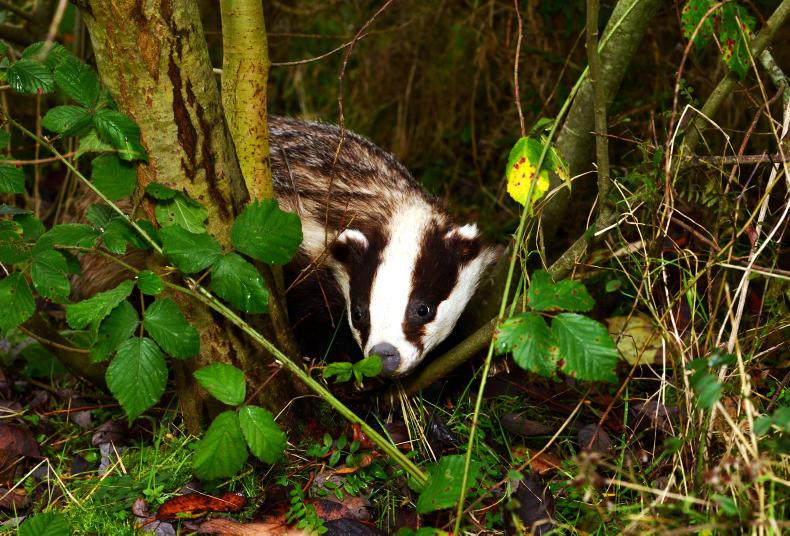Cattle herds in NI that are located near TB-positive badgers are at a greater risk of contracting the disease, new research has confirmed.
Scientists at AFBI and DAERA analysed the strains of TB found in 6,954 herds in NI over an eight-year period and compared it to the TB strains that were found in a roadkill survey of badgers.
The study found that 15.3% of badgers that were tested had bovine TB. There were 30 different strains of TB found in the roadkill badgers, and 26 of these were also found in reactor cattle.
The researchers state that there was an “elevated TB risk” in cattle herds that were located near roadkill badgers that tested positive for the disease.
The average distance between cattle and badgers that shared the same TB strain was 0.82km. That compares to a distance of 1.49km between reactor cattle and TB-positive badgers that had different strains of the disease.
Beef herds tended to have a wider range of different TB strains and were less likely to have the same strains as badgers
The researchers used the location of farmyards when making the comparisons, but they acknowledge that the associations “may be even stronger” if the land area that cattle were grazing could be considered.
The study found that reactor cattle in dairy herds are more likely to have the same bovine TB strain as badgers in the local area. Beef herds tended to have a wider range of different TB strains and were less likely to have the same strains as badgers.
The researchers state that this is probably due to beef herds generally having more cattle movements than dairy herds, which is another route for TB infection.
Meanwhile, the latest figures from DAERA show that NI farmers are continuing to present cattle for TB testing.
At the end of April, the department reduced the age requirement for testing calves from 42 to 180 days old.
In March, DAERA removed the compulsory requirement to carry out TB tests, but the level of testing has been increasing since the height of the coronavirus lockdown
However, only 16% of calves aged 42-180 days old were not presented at herd tests during the week ending 22 May 2020.
In March, DAERA removed the compulsory requirement to carry out TB tests, but the level of testing has been increasing since the height of the coronavirus lockdown.
An update sent Stormont’s agriculture committee states that 20% more animals were tested in mid-May compared to the same period last year, meaning that a backlog from April is starting to reduce.






 This is a subscriber-only article
This is a subscriber-only article










SHARING OPTIONS: